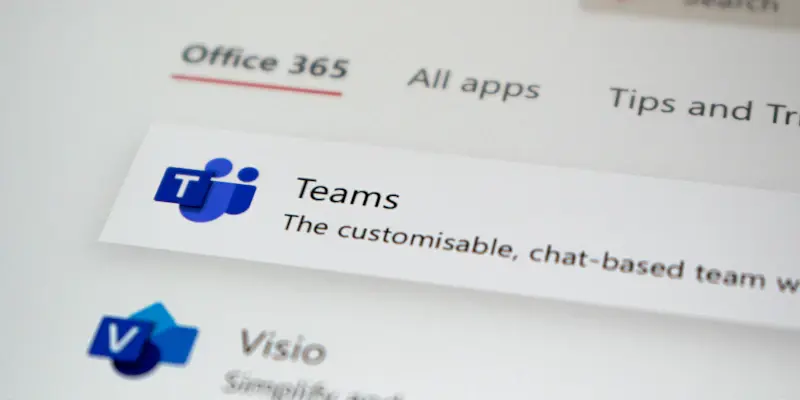In the landscape of modern workforce management, organizations are continuously seeking innovative solutions to obtain valuable employee feedback. Survale, a leading platform renowned for workforce feedback and analytics, has introduced an integration with Microsoft Teams that aims to streamline the feedback collection process for employees and hiring managers. This feature enables the delivery of surveys directly within the Microsoft Teams environment, bypassing traditional email or SMS methods. By embedding surveys into the collaboration tools used daily by teams, this integration enhances the ability to gather crucial insights efficiently and quickly.
Transformative Potential of Integrating Surveys with Collaboration Tools
Jason Moreau, Co-Founder and CEO of Survale, emphasizes the significant impact of integrating surveys within familiar platforms like Microsoft Teams. By meeting employees and managers in their regularly used environments, this approach increases engagement levels and yields more valuable data. Surveys delivered within Teams create a frictionless experience, improving participation rates and optimizing feedback collection processes. This seamless feedback mechanism benefits hiring managers by providing real-time insights during the recruitment process. The identification of gaps in processes and the improvement of candidate experiences are facilitated, eventually leading to an enhanced quality of hires.
The integration also strengthens quality of hire metrics by automating surveys to collect feedback at critical intervals during an employee’s first year. These insights are essential for enhancing retention and performance. The strategy revolves around leveraging familiar collaboration tools to encourage higher participation rates compared to conventional methods. This ensures that organizations receive a higher volume and quality of data from their workforce. Real-time survey delivery allows organizations to swiftly gather and act on employee and candidate satisfaction data, subsequently enhancing talent acquisition and employee engagement programs.
Boosting Employee Engagement and Organizational Success
Survale’s Talent Feedback Platform has long been recognized for its ability to collect and analyze satisfaction data from the recruitment phase through to retirement. The Microsoft Teams integration further empowers HR teams by optimizing processes, technologies, and overall people management strategies. This is achieved through actionable insights derived from consistent and widespread feedback loops. The integration underscores an emerging trend within the HR tech domain: embedding feedback mechanisms directly into tools already in use by employees, thereby reducing friction and increasing engagement.
This trend aligns with the broader industry consensus that employee experience and engagement are critical factors driving organizational success. As more organizations acknowledge the value of continuous feedback, tools like Survale’s platform, with its Microsoft Teams integration, will play an increasingly vital role in providing the actionable insights necessary to refine and improve employee satisfaction as well as overall business performance. By ensuring feedback collection is both efficient and comprehensive, this new development is set to pave the way for more strategic HR decision-making and a more engaged workforce.
Strategic HR Decision-Making through Pervasive Feedback Loops
The introduction of this integration symbolizes a shift towards integrating feedback mechanisms directly into collaborative tools, reaffirming the importance of employee experience in shaping organizational success. This integration into Microsoft Teams simplifies the process of collecting continuous feedback, making it straightforward for organizations to derive actionable insights and enhance their HR strategies. The capability to gather real-time data from employees significantly enriches HR’s ability to identify trends, make informed decisions, and implement timely interventions. One of the crucial advantages of embedding feedback mechanisms into platforms like Microsoft Teams is the elimination of barriers to feedback collection. Employees are more likely to participate when surveys are part of their regular workflows, leading to higher response rates and more accurate data. Additionally, this approach eliminates the delays and disconnects commonly associated with traditional feedback methods. Such immediacy is invaluable in addressing concerns promptly and fostering a culture of continuous improvement within the organization.
Enhancing Employee Satisfaction and Business Performance
In today’s fast-evolving landscape of workforce management, companies are perpetually on the lookout for innovative strategies to gather valuable employee feedback. Survale, a leading platform known for its expertise in workforce feedback and analytics, has unveiled a new integration with Microsoft Teams designed to simplify the feedback collection process for both employees and hiring managers. This feature allows surveys to be delivered directly within the Microsoft Teams environment, effectively eliminating the need for traditional email or SMS methods. By embedding surveys into the collaboration tools that teams already use on a daily basis, this integration significantly enhances the efficiency and speed of gathering crucial insights. This seamless approach ensures that feedback is collected more organically as part of the daily workflow, promoting increased participation and accuracy. By leveraging the tools employees are familiar with, organizations can now benefit from more timely and relevant feedback, ultimately leading to better decision-making and improved workplace dynamics.

